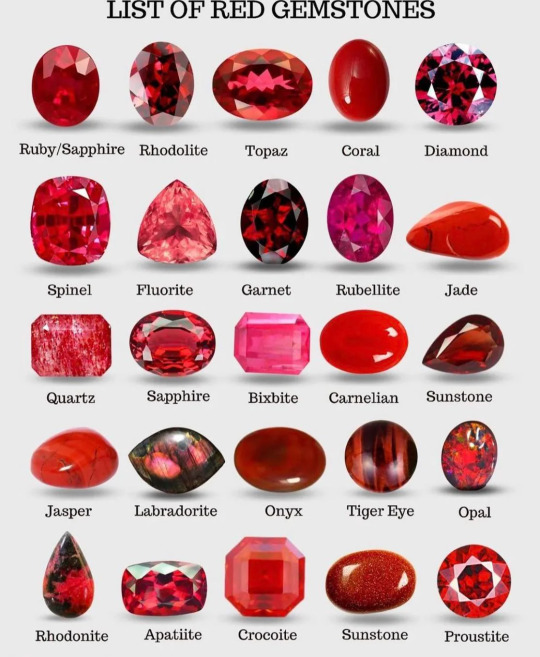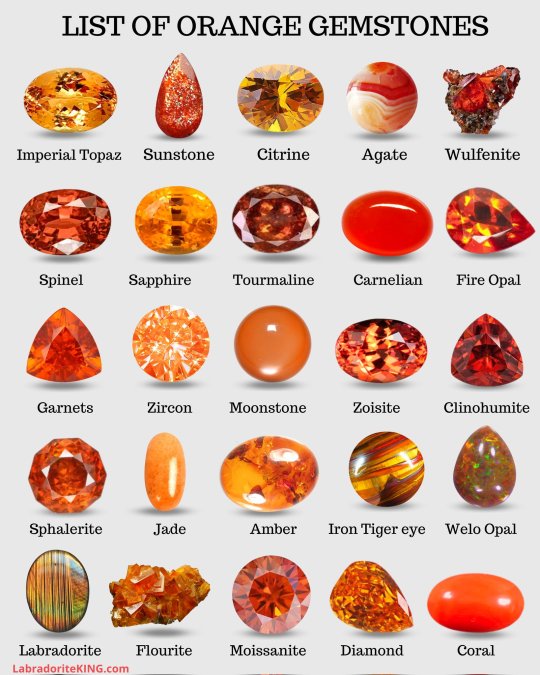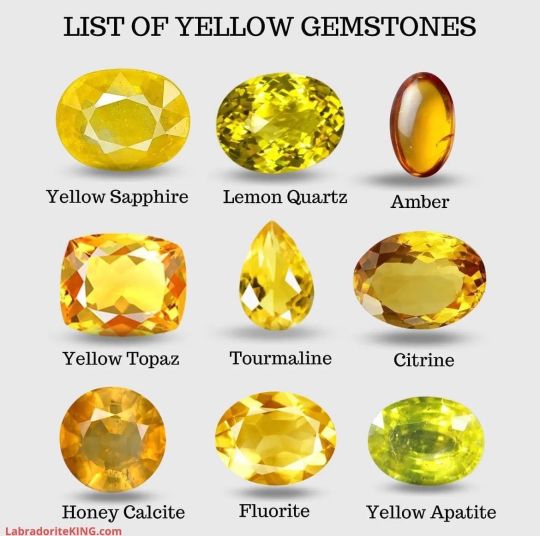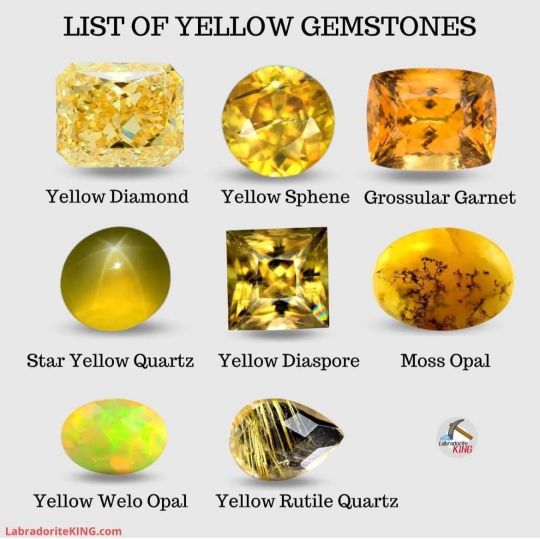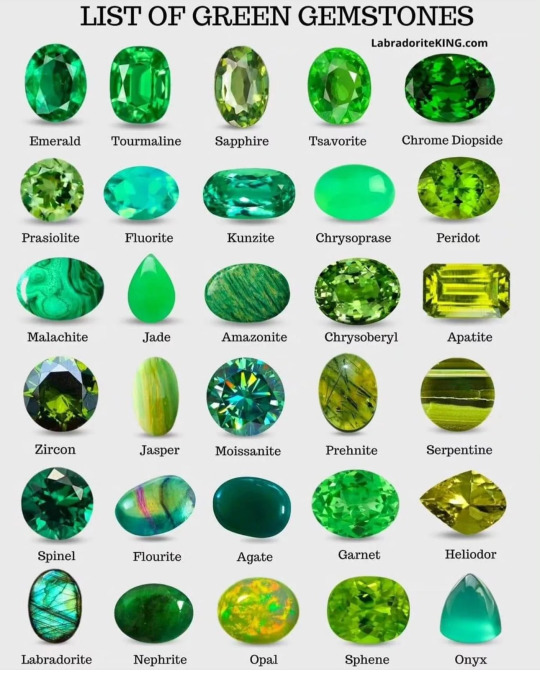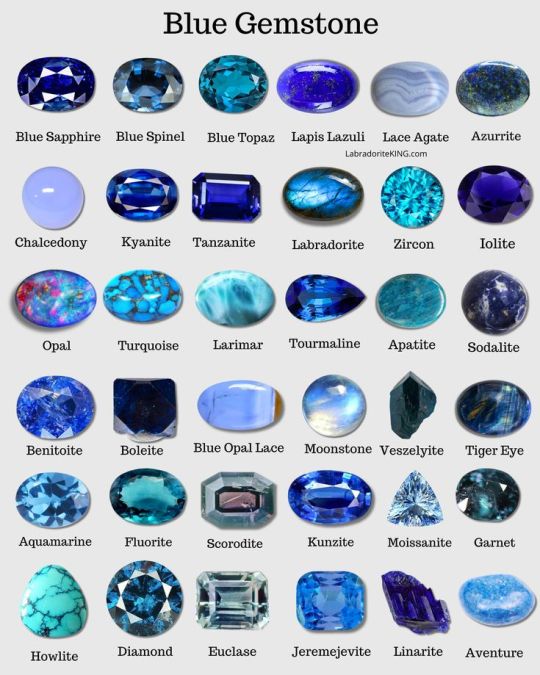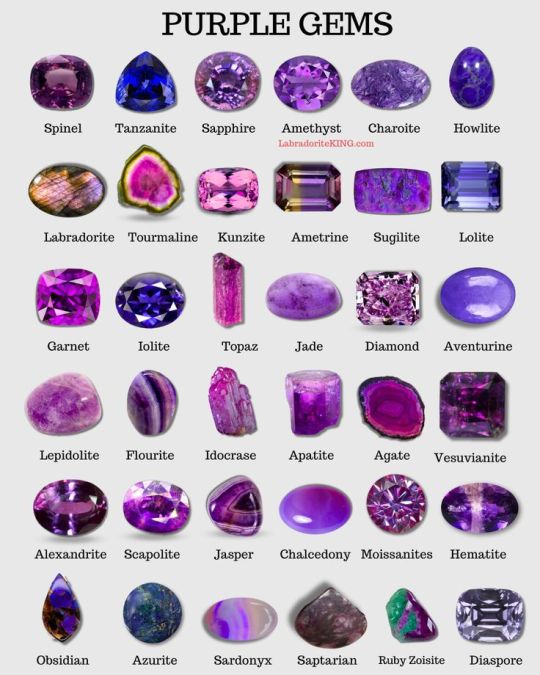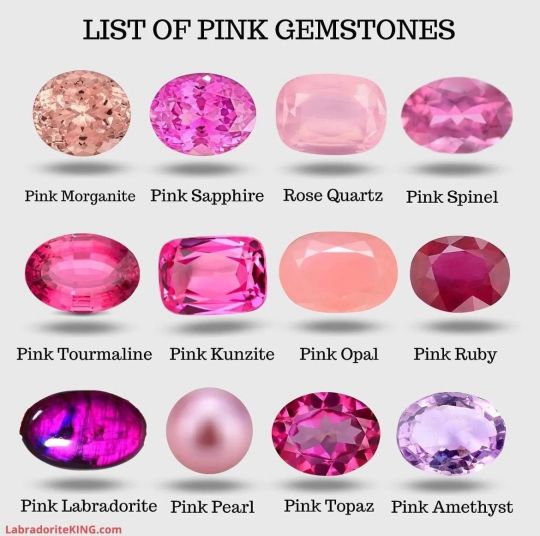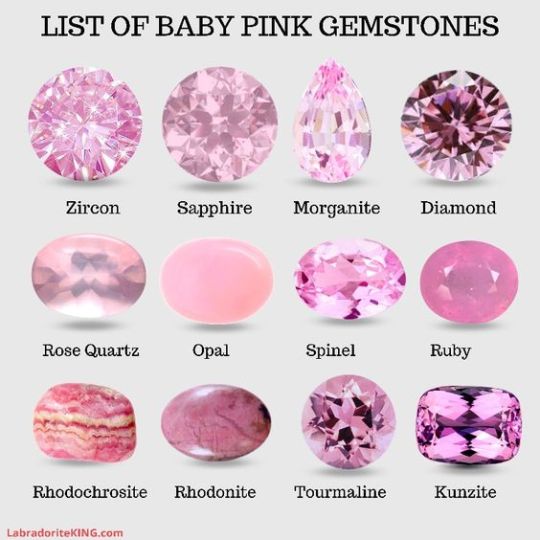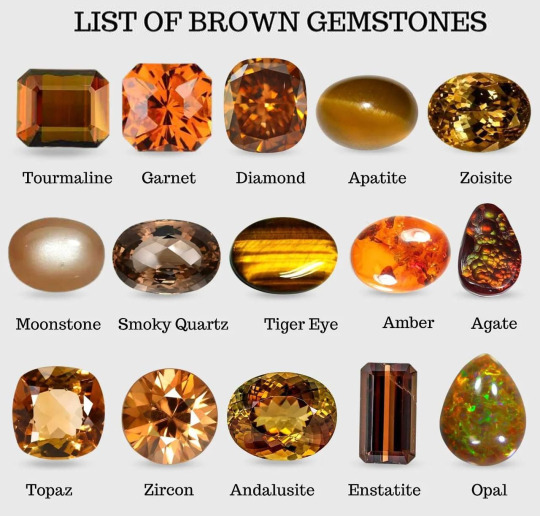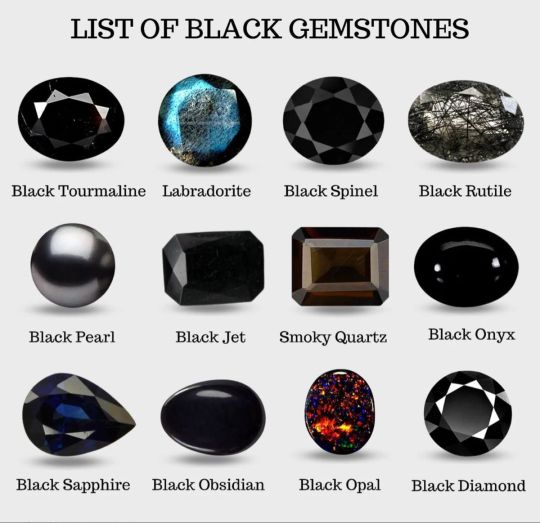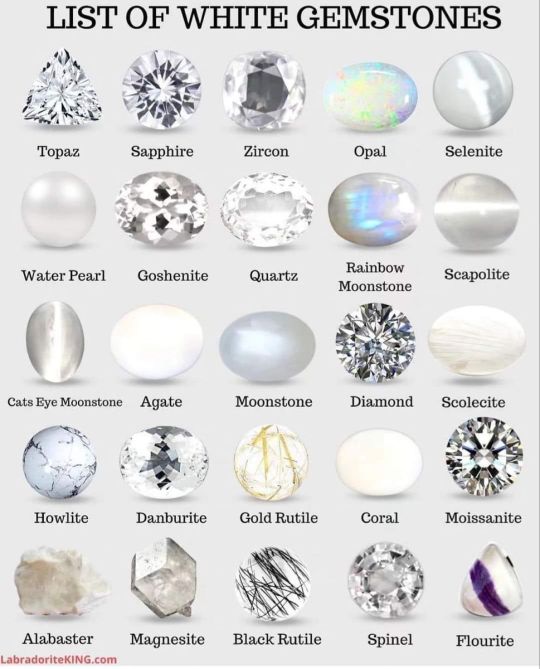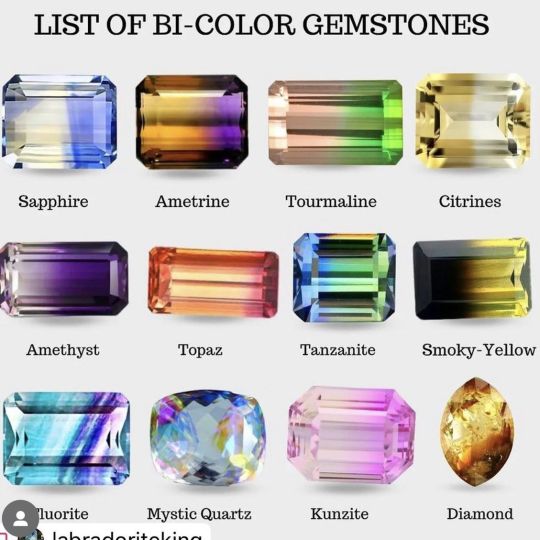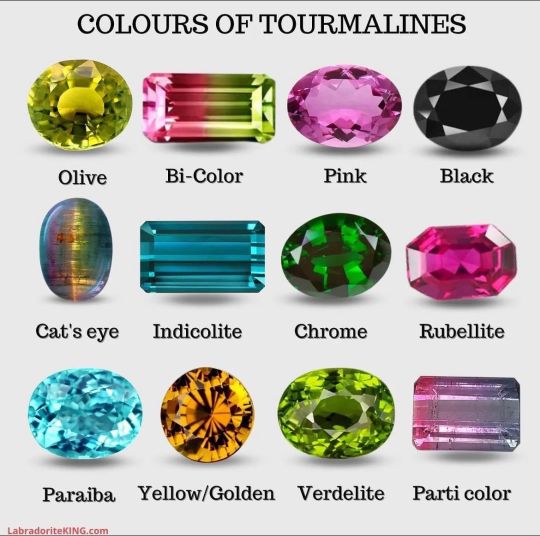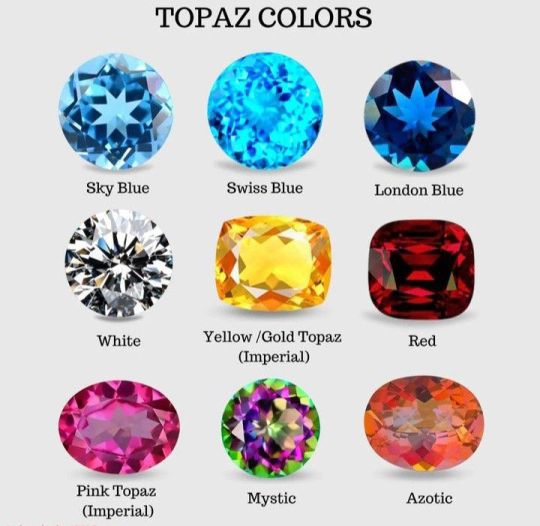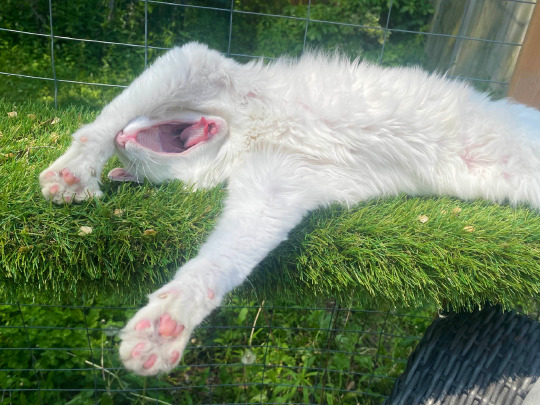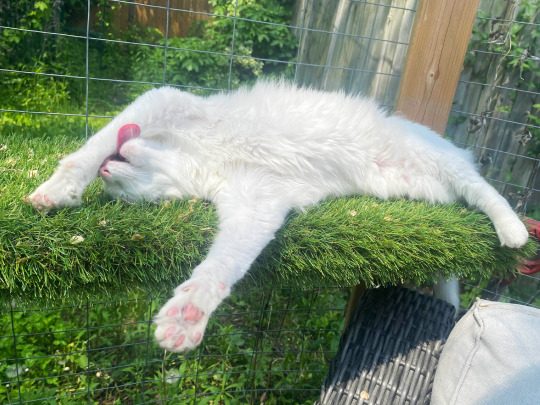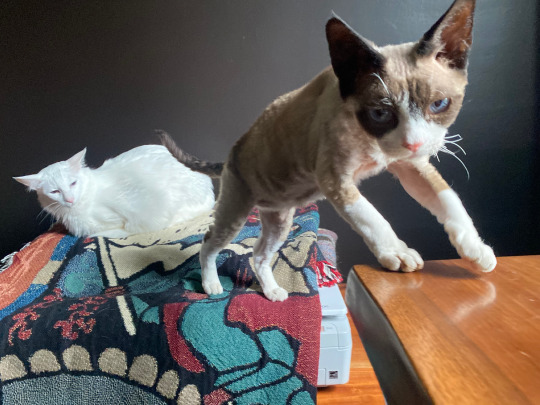Don't wanna be here? Send us removal request.
Text
Belphie is loved by both his aunts, just……in different ways.
8K notes
·
View notes
Text
6K notes
·
View notes
Text
oh…….i had a dream that a religious cult had taken over the city and was hunting me, but I had a little dog I found in the trash named BATHMAT and he looked like a USED MOP and I miss him so much. I want to go back to sleep
12K notes
·
View notes
Text
3K notes
·
View notes
Text
Body Language Cheat Sheet For Writers
╰ Facial expressions
These are your micro-signals, like the blinking neon signs of the soul. But they’re small, quick, and often lie harder than words.
Raised eyebrows — This can mean surprise or disbelief, sure. But it can also be a full-on, silent “Are you serious right now?” when someone’s being ridiculous. Or even curiosity when someone’s too emotionally repressed to askthe damn question.
Furrowed brow — That face people make when they’re doing long division in their head or trying to emotionally process a compliment. It’s thinking, yes—but also confusion, deep frustration, or quiet simmering rage.
Smiling — Can be happiness… or total fake-it-till-you-make-it energy. Some smiles are stiff. Some don’t reach the eyes. Show that.
Frowning — Sure, sadness. But also: disappointment, judgment, or the universal “I’m about to say something blunt, brace yourself.”
Lip biting — It’s not just nervousness, it’s pressure. Self-control. Anticipation. It’s the thing people do when they want to say something and decide, at the last second, not to.
╰ Eye movement
The window to the soul? Yeah. But also the window to when someone’s lying, flirting, or deeply trying not to cry in public.
Eye contact — Confidence or challenge. Eye contact can be gentle, curious, sharp like a blade. Sometimes it’s desperate: “Please understand me.”
Avoiding eye contact — Not always guilt. Sometimes it’s protectiveness. Sometimes it’s “I’m afraid if I look at you, you’ll see everything I’m trying to hide.”
Narrowed eyes — Calculating. Suspicious. The look someone gives when their brain’s saying “hmmm...” and it’s not a good hmm.
Wide eyes — Surprise, yes. But also sudden fear. The oh-God-it’s-happening look. Or when someone just found out they’re not as in control as they thought.
Eye roll — Classic. But try using it with tension, like when someone’s annoyed and trying very hard not to lose it in public.
╰ Gestures
This is where characters’ emotions go when their mouths are lying.
Crossing arms — Not just defensive. Sometimes it’s comfort. A self-hug. A barrier when the conversation is getting too personal.
Fidgeting — This is nervous energy with nowhere to go. Watch fingers tapping, rings spinning, sleeves tugged. It says: I’m not okay, but I’m trying not to show it.
Pointing — It’s a stab in the air. Aggressive, usually. But sometimes a desperate plea: Look. Understand this.
Open palms — Vulnerability. Honesty. Or a gesture that says, “I have nothing left to hide.”
Hand on chin — Not just thinking. It’s stalling. It’s delaying. It’s “I’m about to say something that might get me in trouble.”
╰ Posture and movement
These are your vibes. How someone occupies space says everything.
Slumped shoulders — Exhaustion. Defeat. Or someone trying to take up less space because they feel small.
Upright posture — Not always confidence. Sometimes it’s forced. Sometimes it’s a character trying really, really hard to look like they’re fine.
Pacing — Inner chaos externalized. Thinking so loudly it needs movement. Waiting for something. Running from your own thoughts.
Tapping foot — Tension. Irritation. Sometimes a buildup to an explosion.
Leaning in — Intimacy. Interest. Or subtle manipulation. (You matter to me. I’m listening. Let’s get closer.)
╰ Touch
This is intimacy in all its forms, comforting, protective, romantic, or invasive.
Hugging — Doesn’t always mean closeness. Could be a goodbye. Could be an apology they can’t say out loud. Could be awkward as hell.
Handshake — Stiff or crushing or slippery. How someone shakes hands says more than their words do.
Back patting — Casual warmth. Bro culture. Awkward emotional support when someone doesn’t know how to comfort but wants to try.
Clenched fists — Holding something in. Rage, tears, restraint. Fists mean tension that needs somewhere to go.
Hair tuck — Sure, flirtation or nerves. But also a subtle shield. A way to hide. A habit from childhood when someone didn’t want to be seen.
╰ Mirroring:
If two characters start syncing their body language, something is happening. Empathy. Chemistry. Shared grief. If someone shifts their body when the other does? Take notice. Other human bits that say everything without words...
Nodding — Not just yes. Could be an “I hear you,” even if they don’t agree. Could be the “keep going” nod. Could be patronizing if done too slow.
Crossed legs — Chill. Casual. Or closed-off, depending on context. Especially if their arms are crossed too.
Finger tapping — Time is ticking. Brain is pacing. Something’s coming.
Hand to chest — Sincerity, yes. But also shock. Or grounding—a subconscious attempt to stay present when everything feels like too much.
Tilting the head — Curiosity. Playfulness. Or someone listening so hard they forget to hide it.
Temple rub — “I can’t deal.” Could be physical pain. Could be stress. Could be emotional overload in disguise.
Chin stroking — Your classic “I’m judging you politely.” Often used in arguments between characters pretending to be calm.
Hands behind the back — Authority. Control. Or rigid fear masked as control.
Leaning body — This is the body betraying the brain. A tilt toward someone means they care—even if their words are cold.
Nail biting — Classic anxiety. But also habit. Something learned. Sometimes people bite because that’s how they self-soothe.
Squinting — Focusing. Doubting. Suspicion without confrontation.
Shifting weight — Uncomfortable. Unsure. Someone who wants to leave but doesn’t.
Covering the mouth — Guilt. Hesitation. The “should I say this?” moment before something big drops.
Body language is more honest than dialogue. If you really want to show your character’s internal world, don’t just give them lines. Give them a hand that won’t stop shaking. Give them a foot that won’t stop bouncing. Give them a mouth that smiles when their eyes don’t. And if you’re not sure what your character would do in a moment of fear, or love, or heartbreak, try acting it out yourself. Seriously. Get weird. Feel what your body does. Then write that down.
5K notes
·
View notes
Text
Good Traits Gone Bad
Empathy turning into manipulation
Imagine a character who is deeply empathetic, someone who genuinely feels and understands the emotions of others. At first, this makes them incredibly compassionate and kind, always there to lend an ear or offer comfort. But over time, this empathy begins to shift. Instead of just understanding how others feel, they start to use that understanding to manipulate those around them. They know exactly what to say to get people to do what they want, twisting their caring nature into a tool for control. What once was a beautiful gift becomes a weapon, used to bend others to their will without them even realizing it.
Confidence becoming arrogance
Think of someone who exudes confidence—someone who knows their worth and isn’t afraid to go after what they want. This kind of self-assuredness is magnetic and inspiring, drawing people in. But sometimes, this confidence can grow into something darker. The character starts to believe they’re always right, that their way is the best and only way. They dismiss others’ ideas and opinions, thinking they know better than everyone else. What was once a healthy self-esteem turns into arrogance, pushing people away as they start to feel belittled and unappreciated.
Ambition turning into obsession
Picture a character who is ambitious and driven, always striving for the next big achievement. Their dedication is admirable, pushing them to work hard and aim high. But ambition can have a dark side, too. Slowly, their drive becomes an obsession. They start to focus solely on their goals, willing to sacrifice anything or anyone who stands in their way. Friends, family, and even their own health fall by the wayside as they chase success at any cost. What was once an admirable quality turns destructive, consuming them completely.
Loyalty becoming blind devotion
Loyalty is such a beautiful trait. A loyal character is dependable, someone who stands by the people they care about no matter what. But loyalty can also become dangerous if it goes too far. This character might start to overlook red flags or harmful behaviors, sticking by someone or something even when it’s clearly detrimental. They become so blindly devoted that they lose sight of their own well-being and moral compass. What starts as a positive trait turns into a kind of self-destructive stubbornness, harming them more than helping.
Courage turning into recklessness
Imagine someone who’s incredibly brave, always ready to face challenges head-on and stand up for what they believe in. At first, this courage is inspiring, giving them the strength to overcome obstacles and help others. But sometimes, courage can cross a line. It turns into recklessness, making them take unnecessary risks without considering the consequences. They start to believe they’re invincible, putting themselves and others in danger because they’re too focused on proving their bravery. What was once a powerful strength becomes a dangerous flaw.
Determination becoming stubbornness
There’s something admirable about a character who never gives up, no matter how tough things get. Their determination helps them push through difficulties and keep going when others might quit. But when that determination turns into stubbornness, it’s a different story. They refuse to change their minds, even when all the signs point to a different path. They ignore advice, dismiss alternative viewpoints, and stick to their course out of sheer willpower, even when it’s clearly not working. Their once-praiseworthy persistence becomes a source of frustration for those around them.
Optimism becoming naivety
Someone who always looks on the bright side, no matter what. Their optimism is contagious, lifting the spirits of those around them and helping them see the silver lining in every situation. But if they aren’t careful, this optimism can morph into naivety. They might start ignoring real dangers or fail to recognize when they’re being taken advantage of. Their rosy outlook makes them blind to harsh realities, and they become easily deceived or led astray, all because they’re so focused on seeing the good in everything and everyone.
Protectiveness turning into possessiveness
A character who is naturally protective of their loved ones, always looking out for them and ensuring they’re safe and happy. This protectiveness is heartwarming and makes those around them feel cherished. But when protectiveness goes too far, it can become possessiveness. The character starts to feel like they own the people they care about, becoming overly controlling and jealous. They start dictating others' actions, justifying it as care, but it’s really about their need to keep everything under their control. What started as a caring instinct turns into something suffocating and unhealthy.
Altruism becoming self-neglect
Think about a character who is incredibly selfless, always putting others' needs before their own. They’re the kind of person who would give you the shirt off their back, always ready to help, always there for everyone. But this selflessness can go too far. It turns into self-neglect, where they completely disregard their own needs and well-being. They keep giving and giving until they have nothing left, leading to burnout and exhaustion. Their altruism, while beautiful, ends up harming them because they don’t know how to set boundaries or take care of themselves.
Honesty becoming brutal bluntness
There’s a lot to be said for a character who is straightforward and honest, someone who tells it like it is and doesn’t sugarcoat the truth. People appreciate their transparency and trustworthiness. But when honesty turns into brutal bluntness, it’s no longer a positive trait. This character starts to disregard others' feelings, using their honesty as an excuse to be harsh and tactless. Their words cut deep, hurting those around them, all in the name of being truthful. What was once refreshing candor becomes a source of pain, as they lose sight of the importance of kindness in communication.
58K notes
·
View notes
Text
6K notes
·
View notes






